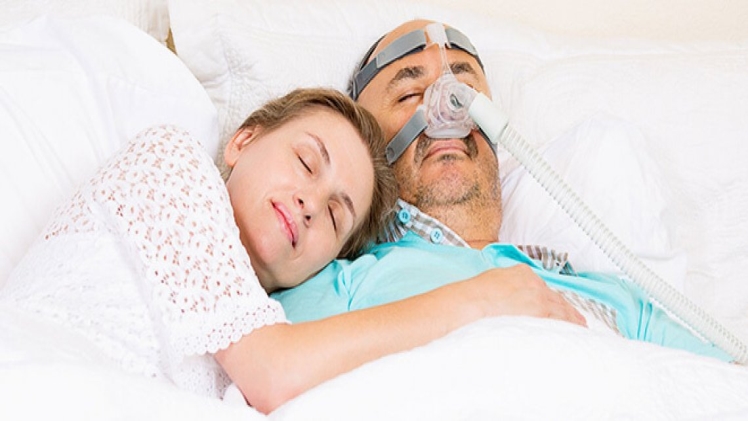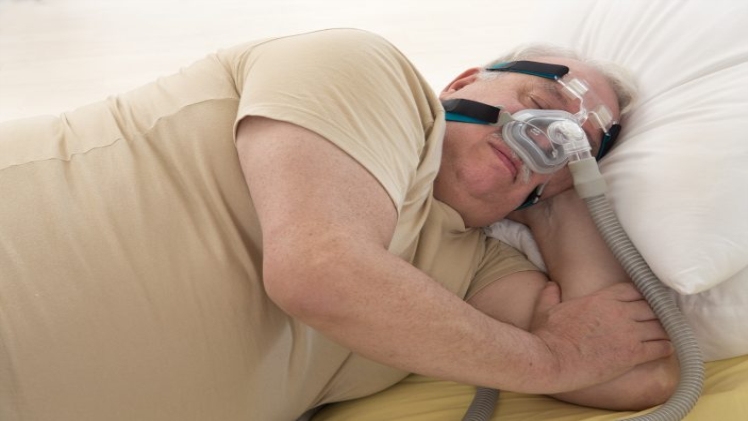What You Need To Know About Obstructive Sleep Apnea
Obstructive sleep apnea is a serious condition that can cause accidents and other health problems. Although it isn’t preventable, the condition can be managed or even prevented through lifestyle changes. Several steps can help people live better lives, including avoiding behaviours that relax the muscles before bed. For example, avoiding alcohol and sedatives can prevent apnea episodes. Also, maintaining a healthy weight can help individuals avoid episodes of obstructive sleep apnea.
While sleeping, the airway can become blocked by a variety of factors, including a narrowing of the throat. If this occurs, the muscles in the back of the throat relax, blocking the airway and preventing a person from breathing normally. During these episodes, the brain detects a lack of oxygen and wakes the person up. The person suffers from hundreds of these episodes, many of which may not even be noticed by the sufferer.
People suffering from sleep apnea may not even know they have the condition, which can affect their sleep quality. Because they can’t remember the symptoms, it’s important to get evaluated by a medical professional. If it’s a serious problem, you’ll want to get tested by a sleep specialist so that you can get the right treatment.
People with obstructive sleep apnea may be more likely to have heart problems, diabetes, and irregular heart rhythms. If left untreated, these conditions can result in heart failure, stroke, or even death. Therefore, it’s important to learn everything you can about sleep apnea.
How Your Weight Affects Sleep Apnea

If you’ve ever wondered how your weight affects your sleep, you’ve come to the right place. Obesity can lead to sleep apnea. This condition is caused by excess fat, which can narrow the airways and contribute to the pauses in breathing that are characteristic of sleep apnea. A 10 percent increase in weight increases the risk of sleep apnea by six times.
Besides increasing your risk of developing sleep apnea, obesity is also associated with heart and vascular problems. Obesity raises blood pressure and increases the circumference of your arteries, which puts you at risk for a heart attack or stroke. Those who are overweight are also prone to metabolic syndrome, which involves high blood sugar, elevated cholesterol levels, and an enlarged waist.
Obesity is also a major cause of obstructive sleep apnea in children. In addition to the risk of sleep apnea in children, obesity causes other problems, including cardiovascular conditions and hormonal imbalances. Sleep apnea is more common in males than females, but women can also suffer from the condition. The obesity epidemic has affected approximately 25 million Americans, with some of these people being obese or morbidly obese.
Obstructive sleep apnea is when something blocks the upper airway during sleep, resulting in pauses in breathing for 10 seconds or more. Obstructive sleep apnea is associated with heart disease and metabolic disorders such as diabetes. Fortunately, there is an effective treatment for sleep apnea that does not involve medication. So, if you’re suffering from sleep apnea, start by losing weight! Another effective method is finding the best direction to sleep in.
Ways By Which You Can Treat Sleep Apnea
There are several ways to treat sleep apnea. Treatment depends on the severity and whether or not a person has other underlying health problems. In severe cases, however, treatment is still necessary.
CPAP
The primary form of therapy is a breathing device known as CPAP or continuous positive airway pressure. The device pipes humidified air through the nose during sleep to keep the throat open and prevent pauses in breathing.
Changes In Lifestyle
Another way to treat sleep apnea is through lifestyle changes. Sleeping on the back causes the soft tissues to collapse toward the throat, narrowing the airway. People with sleep apnea typically have episodes when they sleep on their back. Wearing a side sleeping backpack can help to prevent snoring and improve symptoms. But it’s important to see a doctor determine which method of treatment is right for you.
Avoid Alcohol
To treat sleep apnea, patients should avoid alcohol, which can worsen the condition. They should also avoid drinking alcohol, as drowsiness can cause motor vehicle accidents. So it’s important to schedule rest breaks and avoid driving during sleep apnea. A physician can prescribe a medication that will help to keep the nasal passages open during sleep. Depending on the severity of the problem, surgery may be necessary.
Surgery
If you suffer from mild to moderate sleep apnea, you can undergo surgery to remove the soft tissue in the back of the throat. The procedure aims to increase the airway’s width by eliminating the excess tissue. In some cases, the patient may need to have the tonsils removed. The procedure is also known as uvulopalatopharyngoplasty. If this is not effective, you can undergo jaw repositioning surgery. The procedure will move the jaw forward from the rest of the facial bones, increasing the space behind the tongue and soft palate. If you are interested in mattresses be sure to check out Sleep Republic
Positive Airway Pressure
There are many treatments for sleep apnea. Positive airway pressure is one of them, especially for PWDs who can’t transition to a more active lifestyle. Other treatments include oral appliances, which help keep the throat open while you sleep. These alternatives to weight loss are available through insurance funds with the help of an NDIS plan management provider. Some oral appliances push the lower jaw forward while others hold the tongue in a different position. If positive airway pressure isn’t enough, oral appliances are an excellent alternative. The aim is to prevent the upper jaw from closing during sleep.
Lifestyle Changes
If you’re suffering from mild sleep apnea, lifestyle changes may help you deal with the condition on your own. Some people can even find a natural cure by making small lifestyle changes. Losing a few pounds can lower your symptoms and reduce your blood pressure. Losing even a small amount of weight can also open up the throat and improve the quality of sleep. Lastly, there are surgical treatments available.
Switching your mattress also comes under lifestyle changes. Nowadays there are hybrid mattresses available that are made from advanced technology and are made to suit all types of body problems. And if you are looking for a versatile mattress for all body needs then a hybrid mattress is your answer. Hybrid mattresses are an amalgamation of memory foam and coils and are the best for back pain and pressure relief. There are multiple sites from where you can find the right hybrid mattress for you as per your need and budget.
Lastly
The condition has mental effects as well as physical ones. Some people experience depression and moodiness. People with this disorder are also more susceptible to serious health problems, such as heart disease and stroke. So, it’s important to treat sleep apnea if you have it. The sooner you seek treatment, the better. Just remember to follow your doctor’s instructions. It’s important to have the necessary medications.

